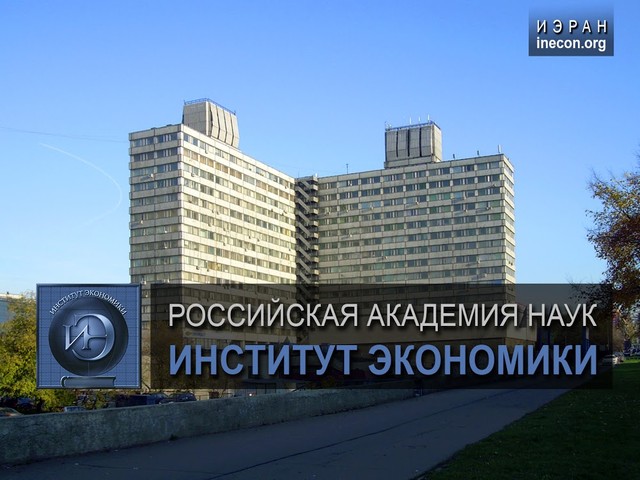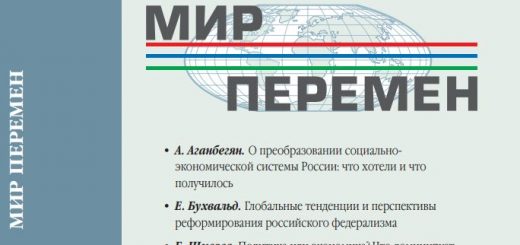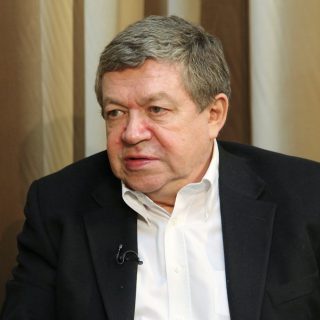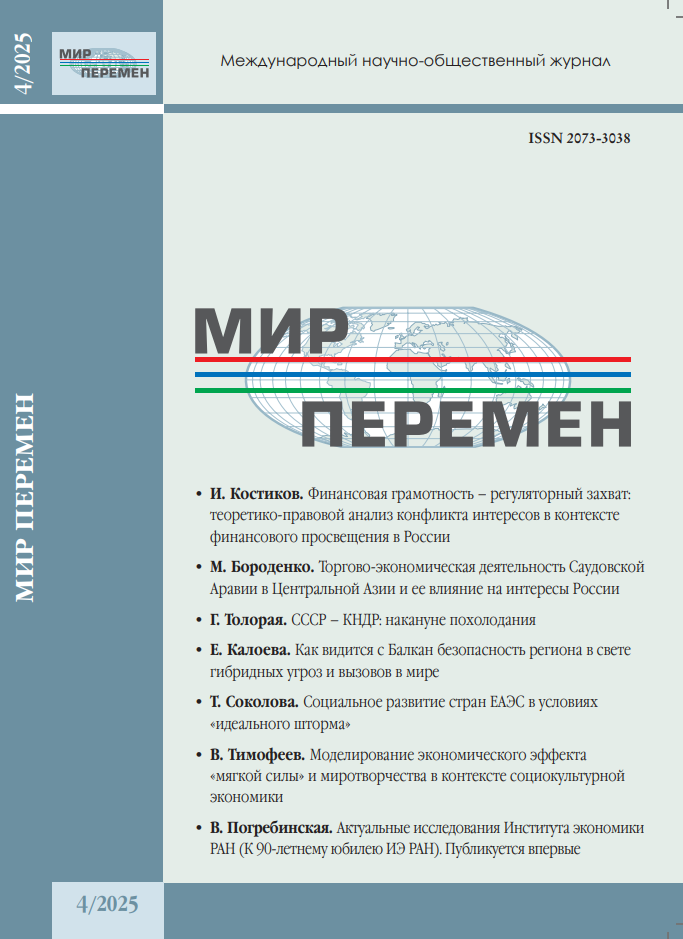Геополитические треугольники в «поясе соседства» в Восточной Азии: вызовы для России
Г. Толорая. Геополитические треугольники в «поясе соседства» в Восточной Азии: вызовы для России
УДК: 327, 339.9.
EDN: JJQAIP
DOI: 10.51905/2073-3038_2025_2_85
Динамика развития геополитических отношений между Россией, Китаем и Северной Кореей (КНДР) в контексте роста напряженности в Северо-Восточной Азии (СВА) в какой-то мере стала реакцией на формированиие «треугольника» США – Япония – Южная Корея. Возможно ли вызревание «северного» контр-альянса?
Важный фактор – недавнее укрепление отношений между Россией и КНДР, более глубокое сотрудничество в области обороны и безопасности. Освещая осторожную позицию Китая в отношении связей России и КНДР, которая учитывает обеспокоенность Пекина стабильностью в регионе и собственными стратегическими интересами, автор предлагает собственную трактовку событий.
Вывод. Хотя формальный «северный альянс» маловероятен, усиление координации между Россией, Китаем и КНДР окажет значительное влияние на региональную и глобальную политику, бросив вызов существующему порядку в Северо-Восточной Азии, которым пытаются управлять США. В связи с этим автор задается вопросом о роли многосторонней дипломатии.
Ключевые слова: треугольник США – РК – Япония, трехсторонний союз РФ – КНР – КНДР, военный союз РФ – КНДР, китайские оценки российскосеверокорейских отношений, многосторонняя дипломатия по корейской проблеме.
Георгий Давидович Толорая – доктор экономических наук, руководитель Центра стратегии России в Азии ИЭ РАН, главный научный сотрудник Центра мировой политики и стратегического анализа, Институт Китая и современной Азии РАН (г. Москва).
G. Toloraya. Geopolitical Triangles in the «Neighborhood Belt» in East Asia: Challenges for Russia
ORCID: 0000–0002–3685–2120
Abstract. The article examines the evolving geopolitical dynamics between Russia, China, and North Korea (DPRK) in the context of increasing tensions in Northeast Asia. It highlights the formation of a US-Japan-South Korea triangular alliance, which has prompted concerns about a potential counter-alliance involving Russia, China, and North Korea. The paper discusses the reactive nature of Russia and China’s policies, emphasizing their response to US-led military and political structures in the Indo-Pacific region. The article also explores the recent strengthening of Russia-DPRK relations, marked by high-level visits and the signing of the Comprehensive strategic partnership treaty in 2024. This partnership signals deeper cooperation in defense and security, particularly in response to perceived threats from the US and its allies. The paper notes China’s cautious stance on Russia-DPRK ties, given Beijing’s concerns over regional stability and its own strategic interests. The author analyses Chinese concerns and explains Russia’s position related to them. The article concludes that while a formal «northern alliance» is unlikely, increased coordination among Russia, China, and North Korea will significantly impact regional and global politics, challenging the existing US-led order in Northeast Asia.
Keywords: The USA – ROK – Japan triangle, the Russian Federation China – DPRK trilateral alliance, the Russian Federation – DPRK Military Alliance, Chinese assessments of Russian – North Korean relations, multilateral diplomacy on the Korean issue.
Georgy D. Toloraya – Doctor of Economics, Chief research fellow, Centre for World Policy and Strategic Analysis, Institute of China and Contemporary Asia, Russian Academy of Sciences (Moscow).









